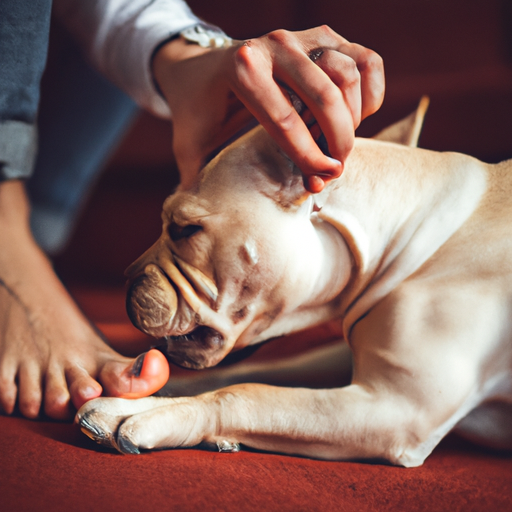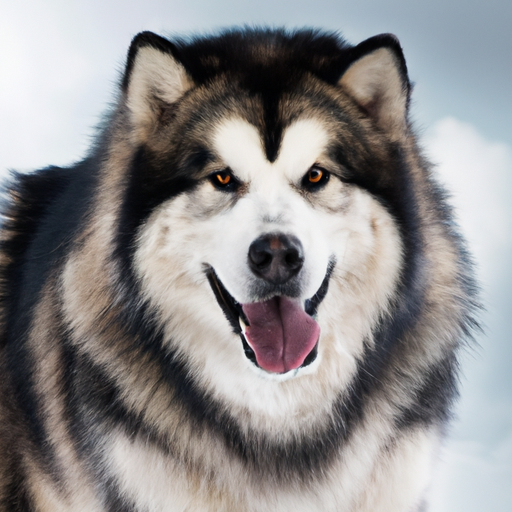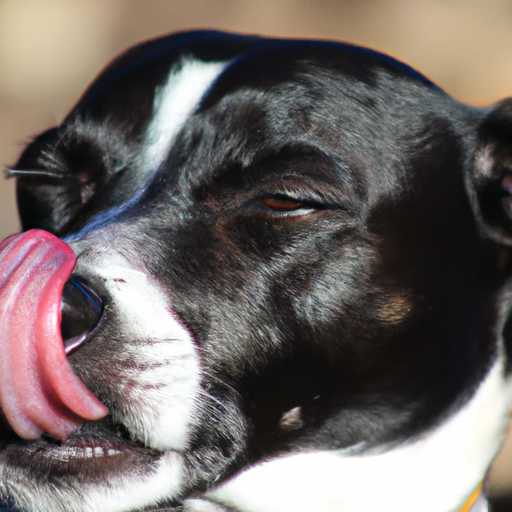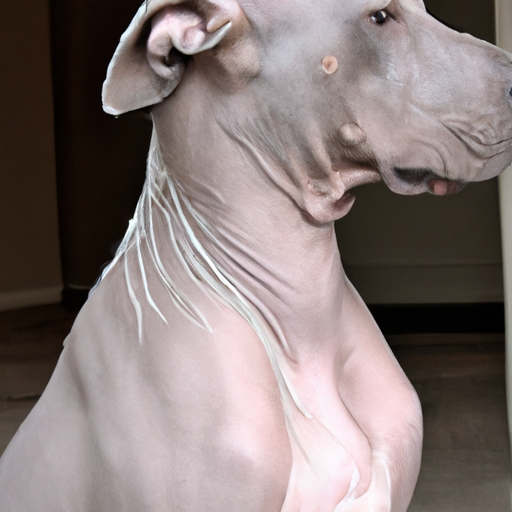Why Do Dogs Lick Your Feet
Ever wondered why your furry friend has a strange fascination with your feet? Well, it might seem odd, but there are legitimate reasons behind why dogs lick your feet. They may be seeking your attention, expressing their affection, or even reacting to the salty taste on your skin. The act, strange to us but normal for them, is actually an intriguing mixture of instinct, sensory input, and learned behavior. Your dog isn’t just being weird — it’s communicating in one of the few ways it knows how. Let’s explore why dogs lick your feet and what they’re trying to tell you when they do.
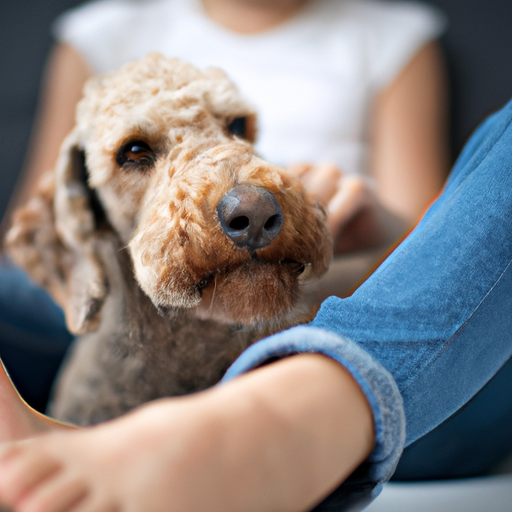
Dogs’ Behavior of Licking
Understanding the behavior of our canine companions is both fascinating and beneficial. Dogs, like most animals, possess a unique set of behaviors that provide insight into their overall well-being and state of mind. One such behavior that intrigues many dog owners is their tendency to lick ourselves and objects around them.
Understanding Canine Behavior
As a dog owner, you’ve likely been the target of a wet, sloppy lick from your furry friend. While some find this behavior endearing, others may find it a bit off-putting. But why does your canine friend do this? Dogs communicate with their world mostly through their noses and their mouths. Therefore, licking is one of the ways dogs explore their environment and connect with those around them.
Do All Dogs Lick?
Most dogs exhibit licking behavior to some degree. However, the frequency and target of licking can vary significantly from one dog to another. Some dogs don’t lick often or may focus their licks on their own body or toys, while others seem to show a fondness for licking their human friends.
Physical and psychological reasons behind licking
There are several physical and psychological reasons why a dog may lick you. Dogs may lick as an act of grooming, to show affection, to seek attention, or even due to boredom. Anxiety or stress can lead to obsessive licking behavior. In some cases, the licking behavior could also indicate underlying health issues.
Historical Perspective of Dogs Licking Feet
Understanding the history behind your dog’s licking habits can provide insightful context.
Evolutionary Aspect of Licking Behavior
Licking isn’t a behavior that’s confined to our domesticated canine friends; wild dogs and wolves exhibit this behavior too. In the wild, this behavior can serve numerous functions – from cleaning wounds to demonstrating submission.
Licking as a Sign of Submission in the Wild
In a pack of wild dogs or wolves, lower-ranking members often lick higher-ranking members as a submissive gesture as it creates peace and fosters bonds within the pack.
How Domestication Impacted Dogs’ Licking Habits
Over thousands of years of domestication, dogs’ behaviors have undoubtedly evolved, but their instinctual habits like licking often live on. That’s why even the pampered pooch in your living room will still often resort to these primal behaviors.
Dogs’ Sensory Perception and Feet Licking
Much of your dog’s world revolves around their mouth and nose – their primary sensory organs.
How Dogs Perceive the World
The canine sense of smell is incredibly well-developed, and their mouth is a significant exploration tool. Licking allows them to investigate their environment in a detailed way, tasting and smelling new things.
Role of Taste and Smell in Dogs’ Licking
Dogs’ sense of taste and smell work hand in hand when they lick. Their tongue has receptors that can detect salty, sweet, bitter, and sour tastes, making your sweat-coated feet an intriguing array of flavors.
What Makes Your Feet a Prime Licking Target?
Your feet are often a preferred target for your dog’s licks for several reasons. The sweat provides a salty treat, and your feet can hold various scents that attract your dog. Also, the act of foot licking is usually reinforced by the attention they receive from you in return.
Communication Aspects of Feet Licking
Licking as a Communication Tool
Licking is often a way for dogs to communicate with their owners. It can serve as a way for dogs to show submission or signal that they want attention.
What is Your Dog Trying to Tell You by Licking?
If your dog is licking your feet, they could be trying to tell you several things. They may be showing affection, seeking attention, or indicating that they are feeling anxious or stressed.
Interpreting Foot Licking Signals
Understanding the body language that accompanies licking can help decipher what your dog is trying to convey. A relaxed body and wagging tail usually signify a happy dog showing affection, whereas lip licking, yawning, and avoidance of eye contact could indicate stress or anxiety.
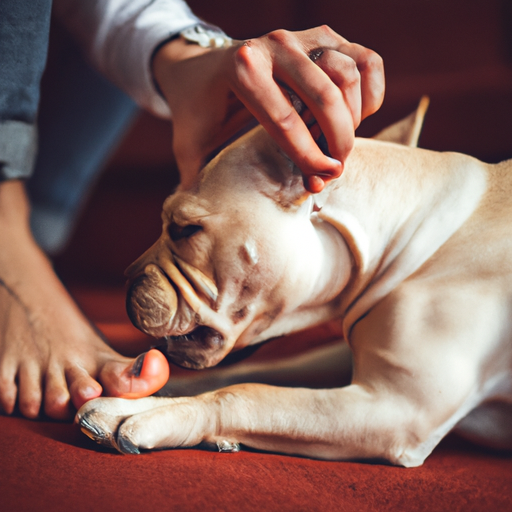
Health Reasons Behind Dogs Licking Feet
Possible Health Indications from Licking
Regular or obsessive licking can sometimes indicate an underlying health issue. For instance, if your dog is licking a specific area of their body excessively, it may indicate discomfort, itchiness or pain in that area.
Licking as a Result of Stress
Dogs may also resort to obsessive licking when they are feeling anxious or stressed. This can be a self-soothing habit or a way to cope with an uncomfortable situation.
Possible Dermatological Issues in Your Dog
If your dog is consistently licking their paws or your feet, they may be dealing with a dermatological issue. Dermatitis or allergies could cause itchiness that leads to constant licking.
Your Health Implications from Dogs’ Foot Licking
Your dog licking your feet may impact your health, both positively and negatively.
Potential Health Risks Posed by Licking
While dogs’ mouths are not as “clean” as some urban legends suggest, the risk of contracting a disease from a healthy household dog licking your feet is relatively low. However, if open wounds are present, a dog’s lick may introduce bacteria that can cause infection.
Potential Benefits to Your Health
On a bright side, dog licks can offer minor anti-bacterial benefits. Certain enzymes in your dog’s saliva (like lysozyme) can help clear away some kinds of bacteria.
How to Manage Licking for Health Reasons
If you have open wounds, skin abrasions or a weakened immune system, it’s best to discourage your pups from licking. Simple strategies like redirecting their attention or using a deterrent spray can be effective.
Role of Saliva in Dogs’ Licking
Dog saliva is a crucial factor that drives their licking behavior.
Understanding the Components of Dog Saliva
Dog saliva contains a variety of components like enzymes, proteins, and minerals that help cleanse wounds and facilitate digestion.
Biological Function of Saliva
When a dog licks, these enzymes in the saliva help break down debris on a wound, which can aid in the healing process.
Why Dogs’ Saliva Attract Them to Lick Feet
Some dogs may be attracted to the taste of their own saliva on your feet, increasing the frequency and duration of their licking sessions.
Feet Licking as a Soothing Behavior
For various reasons, dogs may resort to licking behavior as a means to calm and comfort themselves.
Dogs Licking for Self-Soothing
Dogs often resort to repetitive behaviors like licking when they feel stressed. The act of licking releases endorphins that can help relax and comfort them.
Negative Impacts of Excessive Self-Soothing
However, excessive licking can lead to problems like skin irritation or conditions known as lick granulomas, which are open wounds that result from too much licking.
Coping Mechanisms for Anxious Dogs
If your dog seems to be licking excessively as a way to cope with anxiety, there are several methods you can try. Training, environmental modifications, distractions, and sometimes medication, can all be effective at controlling compulsive behaviors.
Behavior Management for Feet Licking
While foot licking is a common behavior for dogs, you may wish to manage it if it becomes excessive or annoying.
Ways to Manage or Alter Negative Licking Behaviors
Depending on why your dog is licking, the approaches for managing this behavior can be different. Providing more mental and physical stimulation can reduce boredom-induced licking, while anxiety-related licking may require a different approach like training or medication.
Training Techniques to Limit Foot Licking
Positive reinforcement training techniques can be helpful in managing your dog’s licking behavior. By rewarding your dog for stopping licking when asked, you can gradually train them to limit their foot licking activity.
Professional Help Options for Persistent Licking
If excessive licking persists despite your best efforts, it might be time to consult with a professional. Veterinarians or animal behaviorists can provide insight and advice tailored to your dog’s specific situation.
Common Questions and Misconceptions about Dogs Licking Feet
People often have many questions about their dogs’ foot licking behavior.
Addressing Frequently Asked Questions
Some common questions include “Why does my dog lick my feet?” “Is it harmful?” “How can I reduce it?” In most cases, foot licking is normal and harmless, though it can indicate a health issue if excessive or obsessive.
Debunking Myths About Dogs Licking Feet
One common myth is that dogs’ mouths are cleaner than humans’, which is not true. Dogs’ mouths harbor a host of different bacteria than those in humans’, some of which can be harmful if transferred to open wounds or immunocompromised individuals.
Sharing Expert Insights on Dogs’ Foot Licking Behavior
Ultimately, if you have concerns about your dog’s foot licking behavior, it’s best to consult a veterinary professional. They can provide expert insights to help understand and manage this quirky canine behavior.

